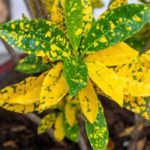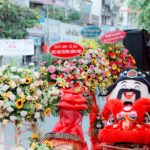To avoid any bad omens that may affect the family, it is important to place the ancestor’s altar, or bát hương, correctly and in accordance with Feng Shui principles. This will bring good luck to the household. Therefore, Bách Hóa XANH would like to share with you information about the ancestral altar and its components.
1 What is an Ancestral Altar?
The ancestral altar, or bát hương, is a sacred vessel that holds the Seven Treasures and tro nếp (a type of rice plant ash). It is placed on an ancestor worship altar or shrine for offerings and prayers.
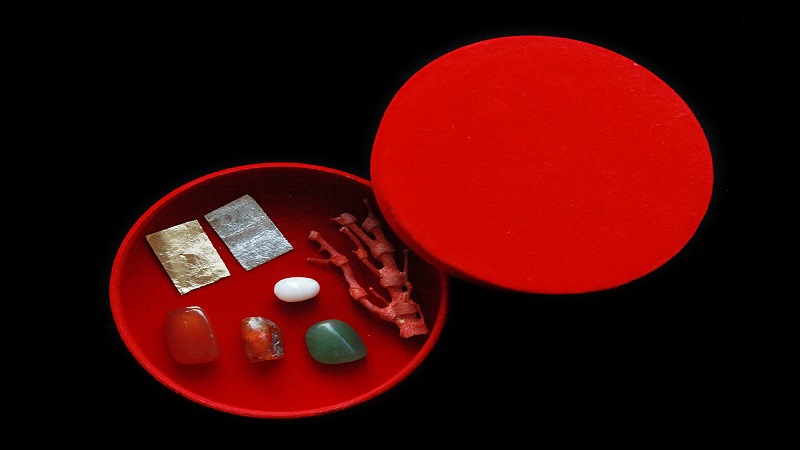 The precious Seven Treasures
The precious Seven Treasures
The Seven Treasures consist of seven precious substances found on Earth: gold, silver, jade, mother-of-pearl, amber, red coral, and agate. These treasures represent the five elements: Metal, Wood, Water, Fire, and Earth.
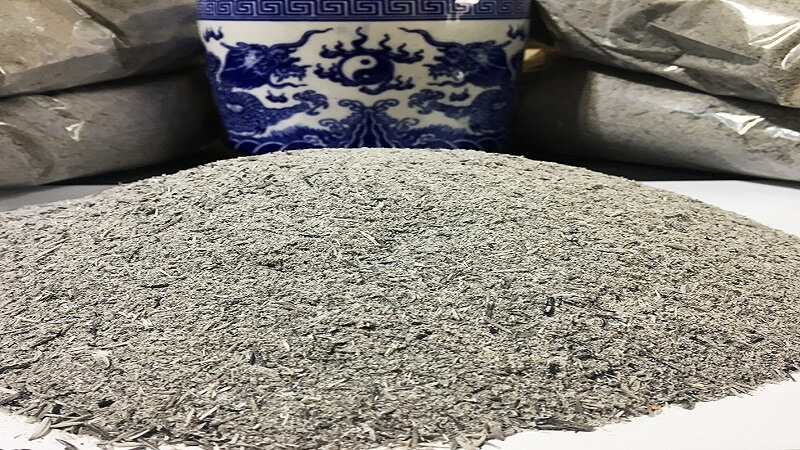 Tro nếp (rice plant ash) in the ancestral altar
Tro nếp (rice plant ash) in the ancestral altar
2 What Are the Components of an Ancestral Altar?
According to Feng Shui masters, the items placed inside the ancestral altar hold great significance and can influence the family’s fortune. Here are the essential components of an ancestral altar:
Dị Hiệu Paper
This is a paper bearing the family name and the name of the ancestor being worshipped. The Dị Hiệu paper is usually printed in gold with red lettering and accompanies the ancestral altar. The ancestor’s name is written vertically in the blank space in the center of the paper.
Note: If multiple ancestors are being worshipped in one altar, their names can be written on a single paper or on separate papers.
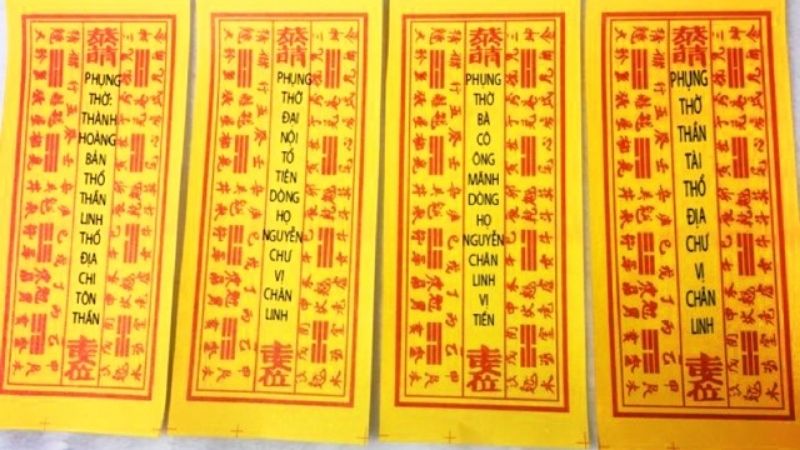 Tro nếp in the ancestral altar
Tro nếp in the ancestral altar
The Seven Treasures
As mentioned earlier, the Seven Treasures consist of seven precious and rare substances: gold, silver, jade, mother-of-pearl, amber, red coral, and agate. These treasures are believed to bring spiritual power to the ancestral altar and prosperity to the family.
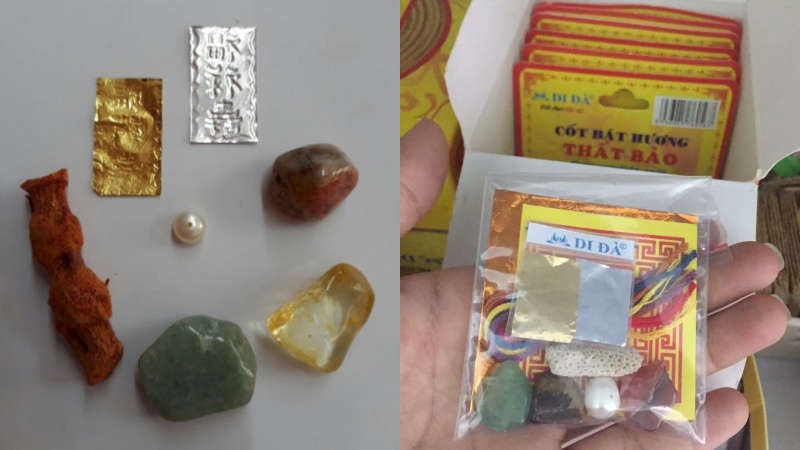 The Seven Treasures placed inside the ancestral altar
The Seven Treasures placed inside the ancestral altar
Five-Spice Powder
The Five-Spice Powder, or Ngũ Vị Hương, is made from natural herbs with a distinctive fragrance. It includes fennel, cinnamon, cloves, star anise, and cumin.
These herbs emit a pure and pleasant aroma, known for its disinfectant and antibacterial properties. It also repels negative energies, cold drafts, and unpleasant odors, creating a solemn atmosphere for worship.
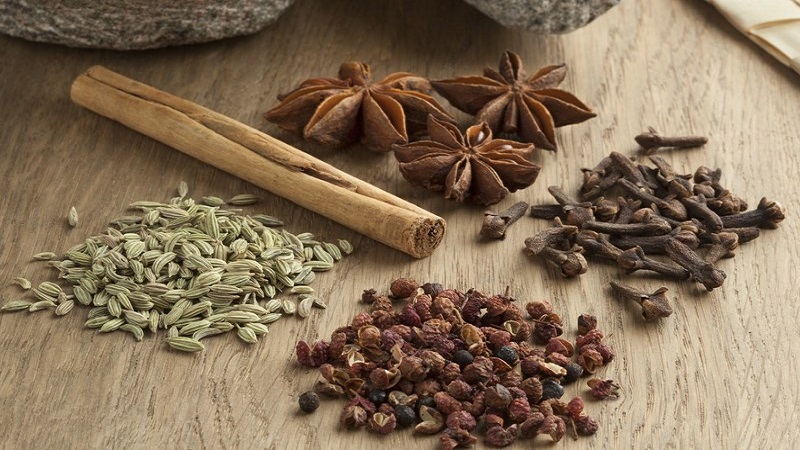 Ingredients of the Five-Spice Powder
Ingredients of the Five-Spice Powder
Tro Nếp
In Feng Shui, Tro Nếp represents the Earth element and is considered the foundation of the altar. It is mixed with other items to facilitate incense burning and has a pleasant aroma.
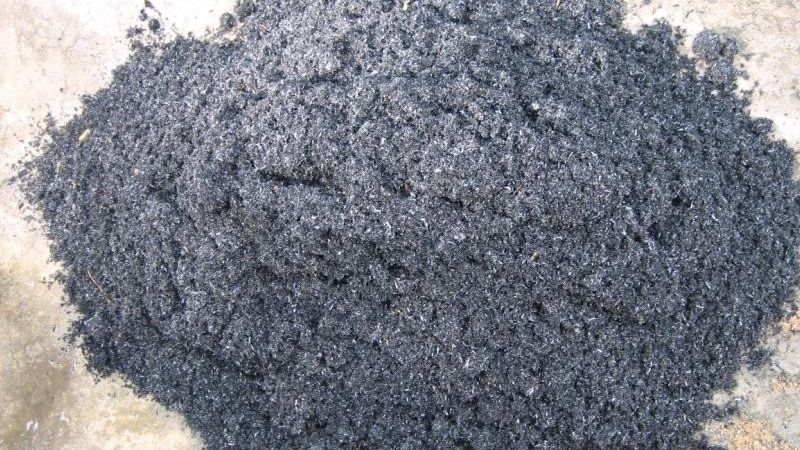 Tro nếp used in the ancestral altar
Tro nếp used in the ancestral altar
3 Who Should Prepare the Ancestral Altar?
In Vietnamese culture, the ancestral altar is considered sacred. Therefore, its preparation should not be taken lightly, and it is essential to choose an auspicious day for this task.
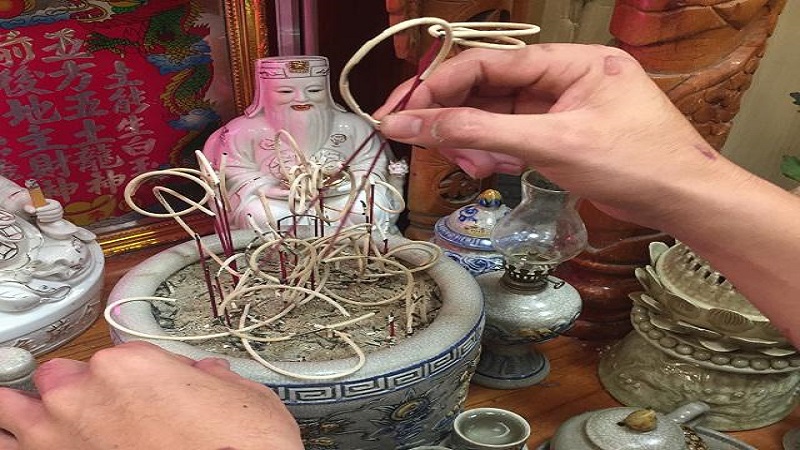 Choose an auspicious day to prepare the ancestral altar
Choose an auspicious day to prepare the ancestral altar
You can either invite a Feng Shui master or do it yourself at home. However, if you decide to invite a master, be sure to research and choose a reputable one to avoid scams. If you choose not to invite a master, the eldest or most respected family member should perform this ritual.
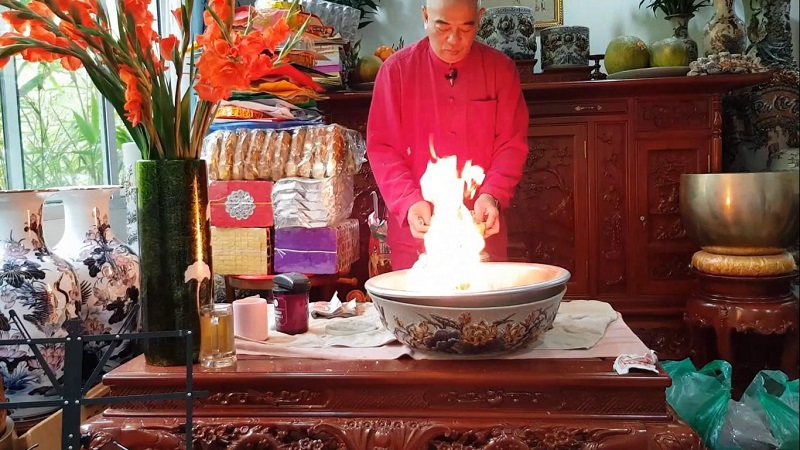 Inviting a Feng Shui master to prepare the ancestral altar
Inviting a Feng Shui master to prepare the ancestral altar
2023 Lunar New Year Gift Ideas for Older Family and Friends
As 2021 approaches, families worldwide are gathering to celebrate the special bond between grandparents and their grandchildren. To show their love and admiration, these thoughtfully chosen gifts will bring a smile to the face of the elderly. Here, we have compiled a list of the 13 most meaningful Tet presents that can bring joy to our beloved grandparents.
























